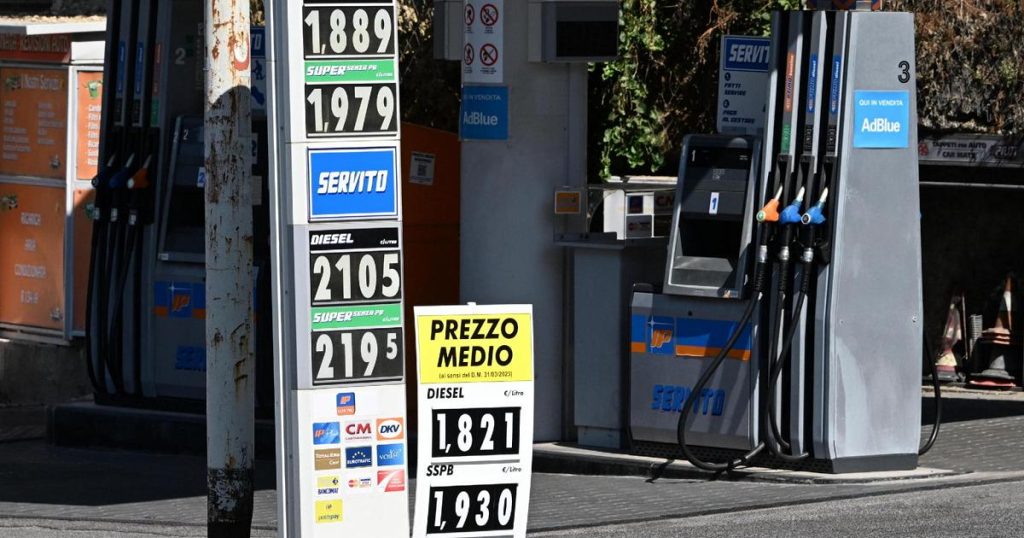Over the weekend, prices of refined products have started to rise again, with Brent settling just below $90. Major brands have also increased their recommended prices. National average prices at the pump have seen a significant increase, with self-service gasoline reaching over 1.9 euros per liter for the first time since October 19. Diesel prices have also risen to 1.81 euros per liter. According to a survey by Staffetta Quotidiana, Eni raised the recommended prices of gasoline and diesel by one cent per liter on Saturday. Tamoil followed suit, while Q8 saw a one-cent increase in gasoline prices.
The average prices communicated by operators to the Price Observatory of the Ministry of Enterprises and Made in Italy, and processed by Staffetta, were as follows: self-service gasoline at 1.908 euros per liter, self-service diesel at 1.809 euros per liter, served gasoline at 2.046 euros per liter, served diesel at 1.949 euros per liter, served LPG at 0.715 euros per liter, served methane at 1.325 euros per kg, and LNG at 1.152 euros per kg. Highway prices were also provided: self-service gasoline at 1.985 euros per liter, self-service diesel at 1.905 euros per liter, LPG at 0.850 euros per liter, methane at 1.473 euros per kg, and LNG at 1.176 euros per kg.
The increase in prices is not encouraging, especially with the approaching driving season in the USA. It is important to monitor how these price hikes will impact consumers, particularly as the cost of transportation and fuel continues to rise. The fluctuations in the prices of refined products, such as gasoline and diesel, can have a significant impact on the overall economy and consumer spending habits. It is also worth noting how different brands are adjusting their prices in response to market trends and fluctuations in crude oil prices.
It is essential for consumers to be aware of these changes in fuel prices, as they can have a direct impact on household budgets and expenses. Rising fuel prices can lead to increased costs for transportation and daily activities, affecting both individual consumers and businesses. It is crucial for consumers to plan and budget accordingly, taking into account the rising cost of fuel and its potential impact on their finances. Additionally, staying informed about market trends and changes in fuel prices can help consumers make more informed decisions regarding their transportation and fuel expenses.
The prices of refined products are influenced by various factors, including global market trends, supply and demand dynamics, and geopolitical events. It is important for consumers to stay informed about these factors to better understand the fluctuations in fuel prices and how they may impact their daily lives. Monitoring changes in fuel prices can help consumers make informed decisions when it comes to purchasing fuel and planning their transportation needs. By staying informed and aware of market trends, consumers can better navigate the impact of rising fuel prices on their personal finances and adjust their budgets accordingly.


